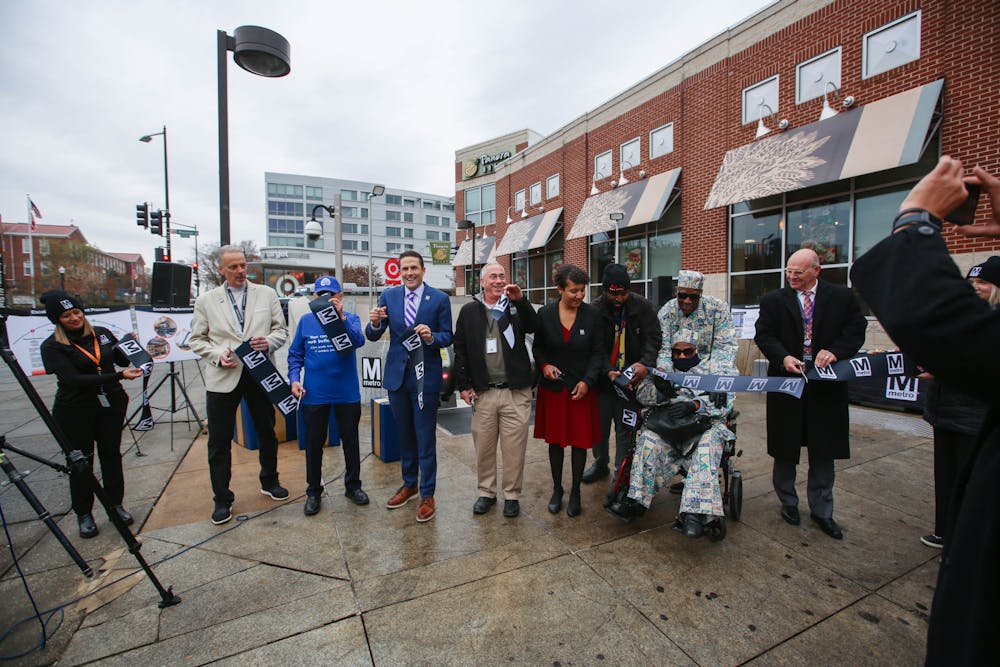For the first time since August 2021, all nine escalators at the Tenleytown-American University Metro station are up and running.
At a ceremony Friday afternoon, Metro General Manager Randy Clarke, Ward 3 Councilmember Matt Frumin and Metro board member Spring Worth cut a ribbon to mark the completion of the agency’s two-year project to replace seven of the station’s escalators, more than two months ahead of schedule.
Clarke told a crowd of at least two dozen people that replacing escalators in Metro stations will move the transit system toward “a higher reliability of accessibility,” in what he said is “already arguably the most accessible system in the country.”
Metro also re-opened the station’s eastern entrance — the one closest to the AU shuttle’s Tenleytown stop — which had been fully closed since Aug. 28, the first day of classes this semester, and partially closed since the fall 2021 semester.
The agency said in an August statement that the entrance would be fully closed to expedite work on those escalators, which had not been running since the project began.
The project is part of a larger goal to replace 130 escalators in 32 stations across the Metrorail system by 2028, to “improve systemwide accessibility for all customers,” the statement said.
In his remarks, Clarke called the project “probably the biggest escalator [and] elevator investment of any place in America.”
The Tenleytown-AU project’s completion marks 69 escalator replacements at 21 stations since the system-wide escalator replacement project began in 2021.
The Tenleytown-AU project is one of the largest across the system, Metro said in a press release.
“You can’t get an escalator off the shelf at a store,” Worth told reporters and Metro customers at the ceremony. “The construction requires heavy equipment to take the old parts out and then put in the new parts. And we totally understand that the construction can be a temporary inconvenience [and] a hassle to customers. But hopefully today you’ll agree it’s worth it when we see these new, more reliable and durable escalators with new parts and new features.”
Those new features include LED lighting and UV disinfection, and the replacements “make sure that these escalators are in a good state of repair,” Worth said.
Metro said in a press release that escalator failures were reduced across the system by nearly 30 percent since the project began two years ago.
The transit agency faces a $750 million budget shortfall as federal aid runs out.
“It’s a Friday and a gray day and there are clouds, and the big cloud is the fiscal cliff that WMATA is facing,” Frumin said.
Frumin spoke to the future of the Metro system: “We all have to come together and figure out a solution so we can have the strongest WMATA possible for all the years going forward because it is critical to the future of our city, [and] critical to the future of our region.”
This article was edited by Abigail Hatting, Jordan Young and Abigail Pritchard. Copy editing done by Isabelle Kravis.





